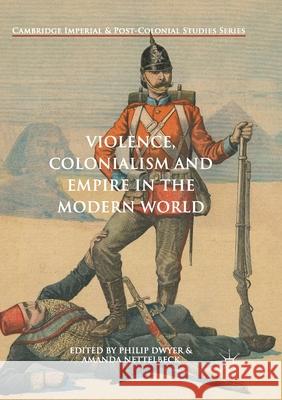Violence, Colonialism and Empire in the Modern World » książka
topmenu
Violence, Colonialism and Empire in the Modern World
ISBN-13: 9783319874302 / Angielski / Miękka / 2018 / 292 str.
Kategorie BISAC:
Wydawca:
Palgrave MacMillan
Seria wydawnicza:
Język:
Angielski
ISBN-13:
9783319874302
Rok wydania:
2018
Wydanie:
Softcover Repri
Ilość stron:
292
Waga:
0.36 kg
Wymiary:
20.83 x 19.56 x 1.78
Oprawa:
Miękka
Wolumenów:
01
Dodatkowe informacje:
Wydanie ilustrowane











